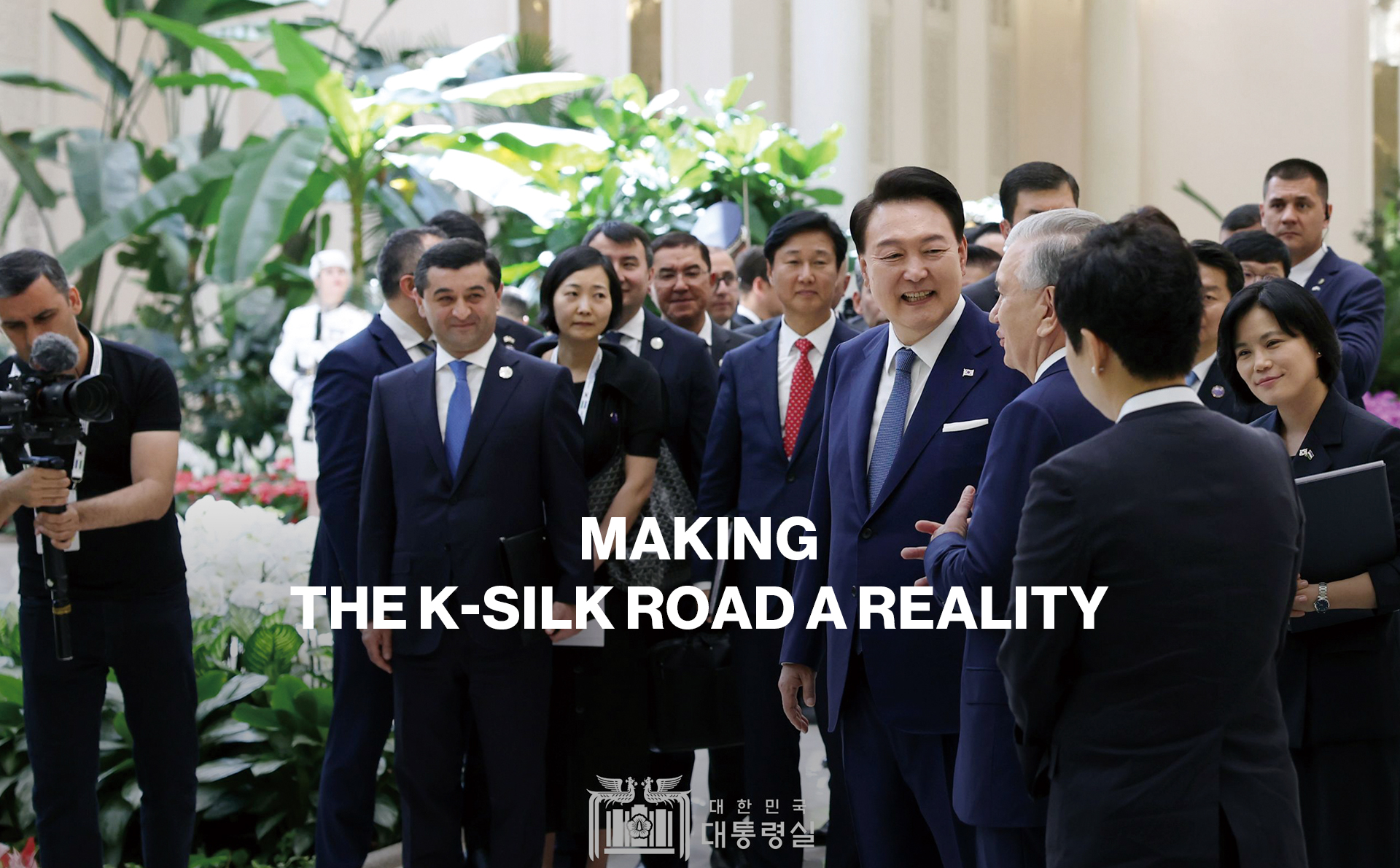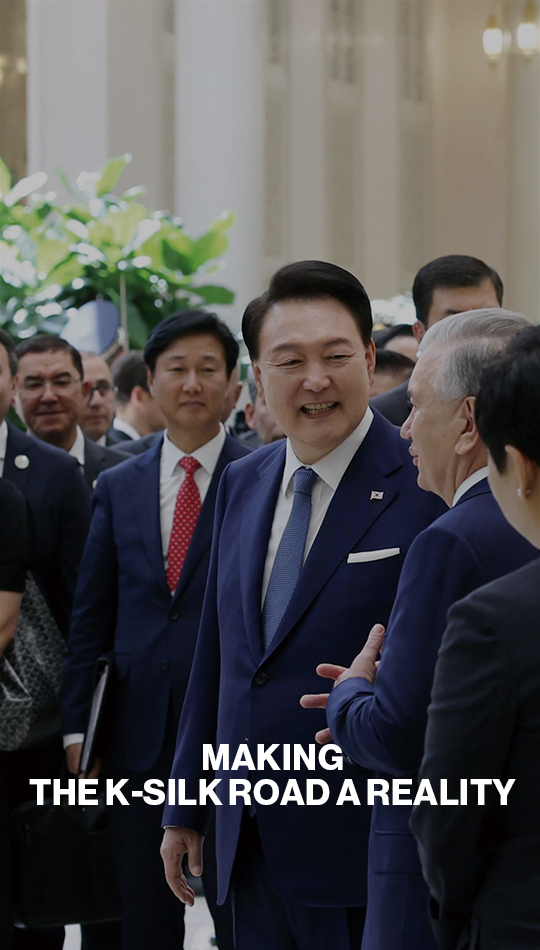

Writer.
Sung Ji Yeon
Photos courtesy of.
Office of the President
Central Asia―historically the heart of the Silk Road linking Europe and Asia―is a region brimming with resources and immense growth potential. This region comprises Kazakhstan, Kyrgyzstan, Tajikistan, Turkmenistan and Uzbekistan.
Recognizing its strategic importance, the Korean government has launched the “K-silk Road” initiative―the first comprehensive diplomatic strategy targeting Central Asia. President Yoon embarked on a significant diplomatic tour on June 10, visiting Turkmenistan, Kazakhstan and Uzbekistan over seven days to promote this initiative.
The K-silk Road initiative―the third regional strategy announced by the Yoon administration following the “Indo-Pacific Strategy” and the “Korea-ASEAN Solidarity Initiative (KASI)”―aims to elevate cooperation with Central Asia, enhancing the region’s connection between Asia and Europe.
On June 10, President Yoon’s first stop was Turkmenistan, where he signed a memorandum of understanding (MOU) and held a joint press conference. The MOU underscored a commitment to bolstering cooperation across various sectors―including regional and international issues, economy and investment, culture, education, communications and human exchanges.
Significantly, Korea expanded its participation in Turkmenistan’s energy and plant projects. Additionally, both nations signed an infrastructure-related MOU―with Korea set to contribute to the development of Turkmenistan’s transportation network. The agreement also included increasing flight services for both passengers and cargo between the two countries.
During his state visit to Kazakhstan, President Yoon further cemented extensive economic cooperation. This visit culminated in the signing of 33 MOUs and four agreements. A key highlight was establishing a partnership for the supply chain of critical minerals―combining Kazakhstan’s abundant resources with Korea’s processing technology, thereby strengthening the complementary industrial structures of both countries.
In Uzbekistan, President Yoon enhanced the broad cooperative relationship between the two nations. This visit resulted in 47 cooperation documents―including Korea’s first export contract for the KTX-Eum (Korail Class 150000) high-speed train system. Moreover, both countries expanded their collaboration in various fields―such as establishing a critical minerals supply chain partnership, developing energy infrastructure and modernizing district heating systems. These multifaceted collaborations are expected to support Uzbekistan’s economic openness and integration into the global market while boosting business opportunities for Korean enterprises in Central Asia.
Through this tour of the three Central Asian nations, the Korean government demonstrated its commitment to realizing true global pivotal diplomacy. By securing support and cooperation for the K-silk Road initiative, the groundwork was laid for the inaugural Korea-Central Asia Summit in 2025.
Plans are underway to establish a summit with the five Central Asian countries―with the first meeting to be held in Korea next year―aiming to elevate Korea-Central Asia relations to a new dimension.
News Ticker
- 01.
1. New Space Agency Aims for Top 5 Global Ranking in Sector
The Korea AeroSpace Administration (KASA), part of an initiative to make the nation one of the world’s top five space powers by 2045, was officially launched on May 27 in Sacheon, Gyeongsangnam-do Province. - 02.
Korea Named Chair Country of ILO for First Time in 21 Years
Korea has been elected chair country of the International Labour Organization for the first time in 21 years.
